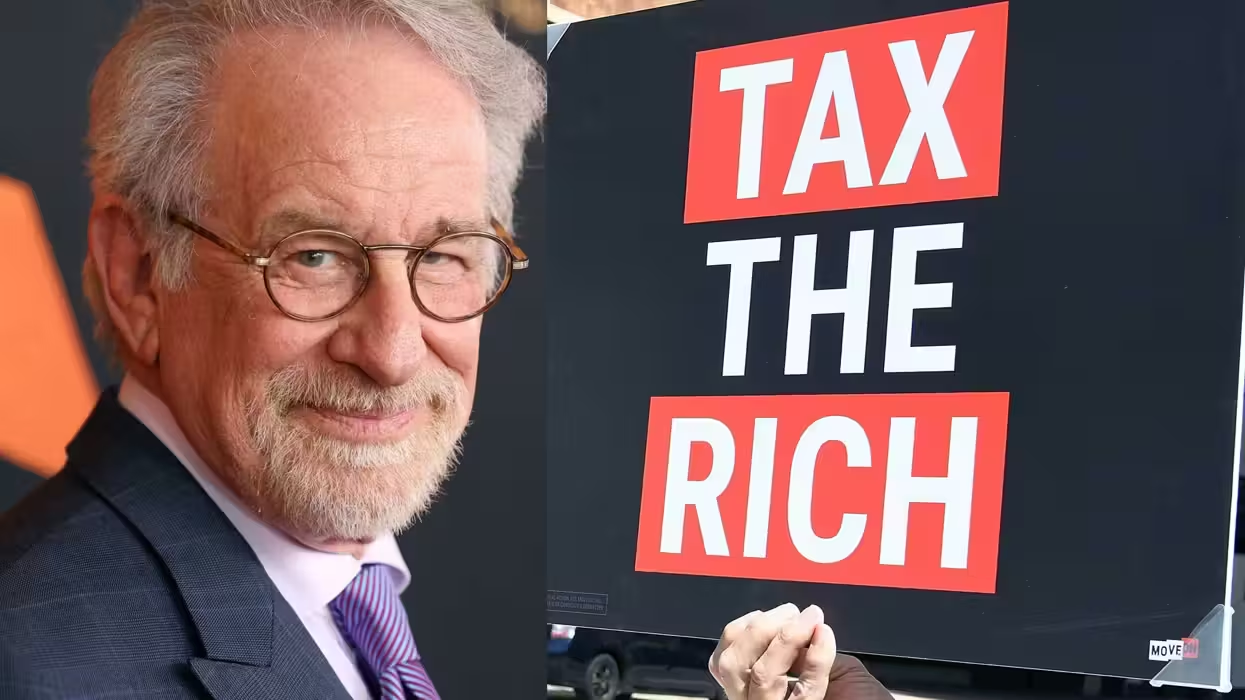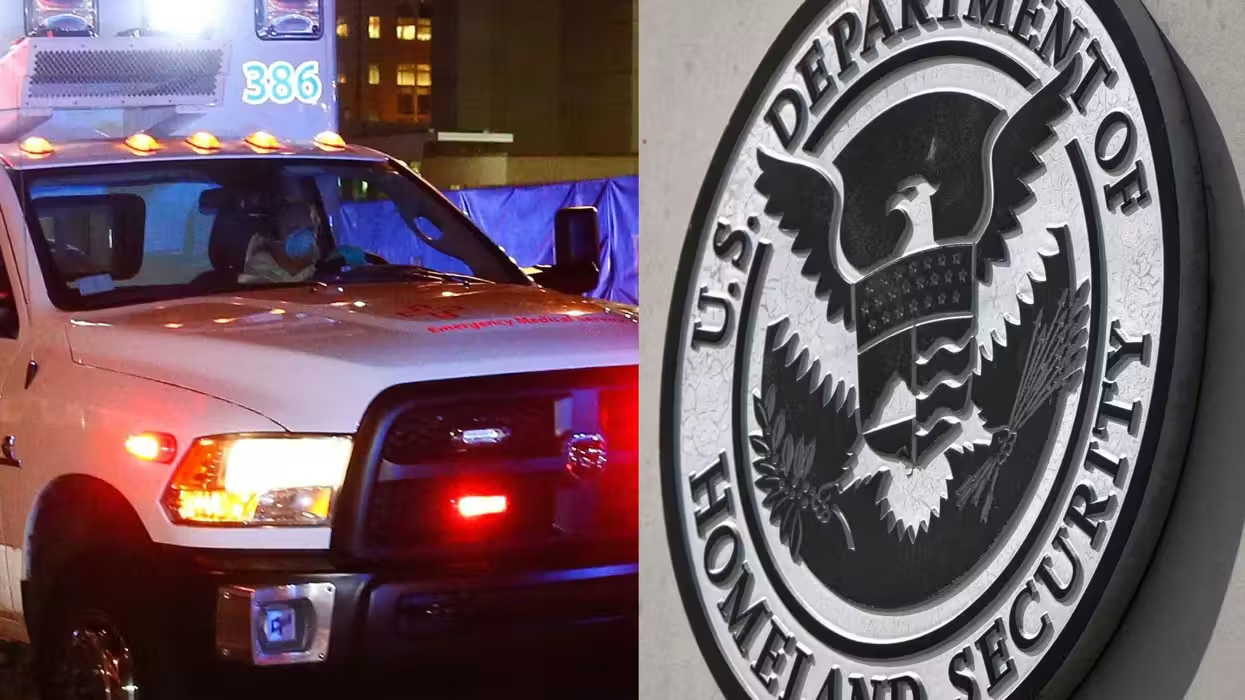© 2026 Blaze Media LLC. All rights reserved.
The bill received 51 votes but fell short of the necessary 60 to end debate.
 WASHINGTON (The Blaze/AP) -- Senate Republicans have voted to kill the White House jobs bill despite weeks of campaign-style barnstorming by President Barack Obama across the country.
WASHINGTON (The Blaze/AP) -- Senate Republicans have voted to kill the White House jobs bill despite weeks of campaign-style barnstorming by President Barack Obama across the country.
Forty-six Republicans joined with two Democrats to filibuster the $447 billion plan.
That vote was not final. The roll call was kept open Tuesday night to allow Sen. Jeanne Shaheen, D-N.H. to vote. But it would have taken 60 votes in the 100-member Senate to keep the legislation alive.
The plan would have included Social Security payroll tax cuts for workers and businesses and other tax relief totaling about $270 billion. There also was to be $175 billion in new spending on roads, school repairs and other infrastructure - as well as jobless aid and help to local governments to avoid layoffs of teachers, firefighters and police officers.
Republicans opposed the measure over its spending to stimulate the economy and its tax surcharge on millionaires.
THIS IS A BREAKING NEWS UPDATE. Check back soon for further information. AP's earlier story is below.
Despite President Barack Obama's exhortations, the Senate prepared to swiftly kill his jobs package Tuesday and the White House and congressional leaders were already moving on to other ways to cut the nation's painfully high unemployment without raising taxes.
Obama's $447 billion jobs bill didn't figure to get a single GOP vote, even after his weeks-long campaign-style effort to drum up support for a measure he said would reduce the jobless rate from its current 9.1 percent.
Anticipating defeat, Obama promised to try again in smaller bites. "If they don't pass the whole package we're going to break it up into constituent parts" and try to push them through separately, Obama told members of his jobs council.
Still he pressed hard for Senate passage of the entire bill.
"Any senator who votes no should have to look you in the eye and tell you what exactly they're opposed to," Obama said to a union audience in Pittsburgh. Looking ahead to next year's elections, he said, "I think they'll have a hard time explaining why they voted no on this bill - other than the fact that I proposed it."
In fact, Democratic defections appeared to threaten that the measure would fail to win a simple majority, much less the 60 votes needed to overcome a Republicans filibuster. Even some who were to vote to break the filibuster, including Jim Webb, D-Va., and Joe Lieberman, a Connecticut independent who aligns with Democrats, said they oppose the underlying measure.
Obama's plan would combine Social Security payroll tax cuts for workers and businesses and other tax relief totaling about $270 billion with $175 billion in new spending on roads, school repairs and other infrastructure, as well as unemployment assistance and help to local governments to avoid layoffs of teachers, firefighters and police officers.
Obama says that the plan - more than half the size of his 2009 economic stimulus measure - would be an insurance policy against a double-dip recession and that continued economic intervention is essential given slower-than-hoped job growth.
"This is gut check time," Obama said. "Right now, our economy needs a jolt. Right now. And today, the Senate of the United States has a chance to do something, right now, by voting for the American Jobs Act."
Unlike the 2009 legislation, the current plan would be paid for with a 5.6 percent surcharge on income exceeding $1 million that would raise about $450 billion over the coming decade.
"Democrats' sole proposal is to keep doing what hasn't worked - along with a massive tax hike that we know won't create jobs," Senate Minority Leader Mitch McConnell, R-Ky., said Tuesday, saying there are 1.5 million fewer jobs than when Obama's 2009 economic package became law. "Why on earth would you support an approach that we already know won't work?" McConnell said.
Democratic support isn't unanimous either. Moderates including Sens. Ben Nelson of Nebraska and Joe Manchin of West Virginia, both up for re-election next year in states where Obama figures to lose, may abandon Obama on this issue.
The White House and Democratic leaders say the great majority of Democrats will vote for the plan, however. Support among Democrats has been shored up by replacing Obama's tax increases - particularly a proposal to limit the value of itemized deductions for families making more than $250,000 - with the surcharge on millionaires.
That millionaires proposal would hit about 392,000 households, according to an analysis by the Tax Policy Center, a Washington think tank. In 2013, the first year the tax would take effect, those wealthy households would see their taxes increase by an average of $110,500, according to the analysis.
Next in Congress, however, both the House and Senate will turn Wednesday to approving trade agreements with Colombia, Panama and South Korea that could create tens of thousands of jobs, one of the few areas of agreement between Republicans and the administration on boosting the economy.
In coming weeks and months, Democrats promise further votes on jobs. But it remains to be seen how much of that effort will involve more campaign-stoked battles with Republicans and how much will include seeking common ground in hopes of actually passing legislation.
Leaders of the GOP-controlled House have signaled they support tax cuts for small businesses and changes to jobless insurance to allow states to use unemployment funds for on-the-job training. And they've signaled they'll be willing to accept an extension of Obama's 2 percentage point payroll tax cut. But stimulus-style spending is a nonstarter with the tea party-infused chamber.
Tuesday's vote played out as disaffected crowds continued to occupy Wall Street, a square in Washington and parts of other cities around the country in protest of income inequality and related issues.
Obama advisers said they were working with Senate Democratic leaders on how and when to break out separate aspects of the overall jobs bill for votes.
Even before Tuesday's defeat, the White House was casting the Senate vote as but the first act in what one Obama adviser called a long-term play - essentially, an autumn full of action to force Congress to take action on jobs. Senior Obama officials said it was important for the Senate to act to keep pressure on the Republican-led House.
The White House appears most confident that it will be win enactment to continue a 2-point payroll tax cut through 2012 and to extend emergency unemployment benefits to millions of people - if only because, in the White House view, Republicans won't want to accept the harm of letting those provisions expire.
White House officials are also hopeful of ultimately garnering votes for the approval of infrastructure spending and tax credits for businesses that hire unemployed veterans.
Obama promised to press for quick action on public works spending.
"Having relevant businesses get behind an effort to move this infrastructure agenda forward is a priority," Obama told corporate and labor leaders Tuesday.
"We're going to need a push, I think, from the business community in particular in order to get this across the finish line," he said.
Want to leave a tip?
We answer to you. Help keep our content free of advertisers and big tech censorship by leaving a tip today.
Want to join the conversation?
Already a subscriber?
more stories
Sign up for the Blaze newsletter
By signing up, you agree to our Privacy Policy and Terms of Use, and agree to receive content that may sometimes include advertisements. You may opt out at any time.
Related Content
© 2026 Blaze Media LLC. All rights reserved.
Get the stories that matter most delivered directly to your inbox.
By signing up, you agree to our Privacy Policy and Terms of Use, and agree to receive content that may sometimes include advertisements. You may opt out at any time.






